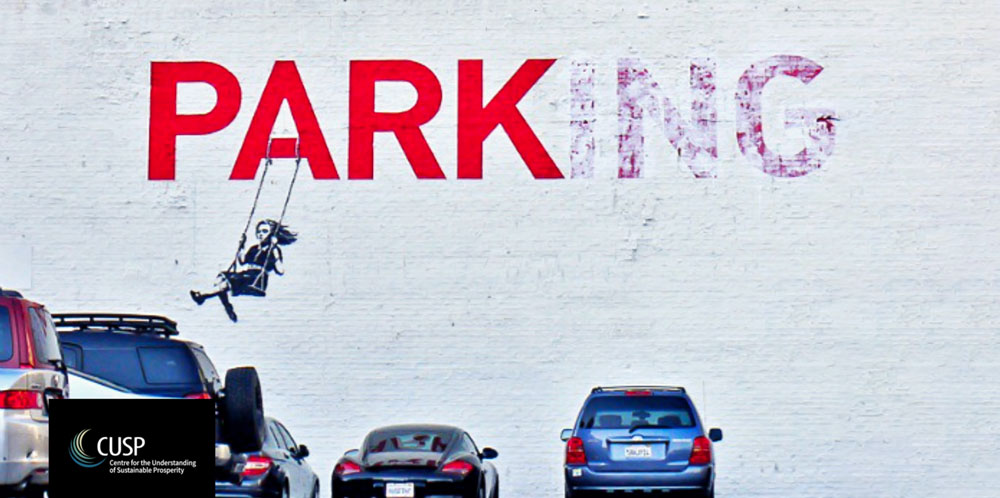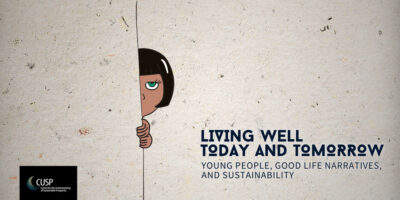Why health should replace wealth as the heart of prosperity
The economic system to which we are in thrall throws us out of balance, Tim Jackson and Julian Sheather write in this blog. By failing to meet our most essential needs it is doomed to immiserate and, ultimately, sicken us. We urgently need to regain a richer, more satisfying understanding of ourselves, and our place in the world. (This article first appeared on the BMJ website.)
Blog by TIM JACKSON and JULIAN SHEATHER

Ask people what matters most in their lives and the chances are that health will come out somewhere near the top. Health for ourselves. Health for our friends and our families. Health too—sometimes—for the fragile planet on which we live and on whose health we depend.
The same lesson must surely top those we learnt over the last eighteen months. As Covid spread, there was a sense everywhere of priorities being reshuffled. Without health, all routes to wellbeing become impassable. The trappings of material affluence, hitherto sacred to our vision of prosperity, seem at best ephemeral and at worst irrelevant.
Yet, as the epidemiological (and ideological) battles over “Freedom Day” attest, those precious lessons were both hard won and swiftly forgotten. A matter of months after we applauded our nurses from the doorstep, they were offered the paltriest of pay rises. Now once again our carers find themselves at the mercy of a cold economic calculus: faced with escalating covid-19 hospital admissions and the potentially deadly postponement of other emergency treatments—purely to satisfy the libertarian mood of the day.
Appointing an ex-Chancellor of the Exchequer as Secretary of State for Health and Social care may be a good way for bullish politicians to pander to a fickle profit-driven corner of the electorate. But whatever the economic outcome achieved by an “irreversible”’ lifting of restrictions, society will be forever poorer if we forego this opportunity to ask what kind of economy we now need, what kind of “recovery” we should aim for. What can prosperity possibly mean for a promiscuous species on a finite planet?
The question is almost as old as the hills. But the contemporary answer to it is paralyzingly narrow. Cast in the garb of late capitalism, prosperity has been captured by the ideology of “eternal growth:” a mantra that insists that more is always better. Despite overwhelming evidence that relentless expansion is undermining nature and driving us towards a devastating climate emergency, the myth of growth still reigns supreme.
Even as we write, New York city has been paralysed by floods, a heat dome over British Colombia has led to temperatures 10-20°C above seasonal averages, and Europe and the UK have experienced flash floods. These events kill. Sudden deaths rose nearly 200 per cent during the heatwave in British Columbia. Lawsuits are being filed against the oil majors who knew about the possibility of climate change as much as forty years ago. But the price will be too high even for the oil-rich giants to pay.
The planetary damage caused by this expansionary zeal is compounded by another very human cost. Capitalism needs selfish, insatiable consumers to achieve its ambitions for growth. So it incentivises that kind of behaviour. It lionises those who excel at it. Simultaneously, it undervalues the tasks that matter most to society—care work, for example—and denigrates those who labour there. Capitalism has “gaslighted” us into accepting a tainted view of ourselves and a tawdry substitute for human fulfilment.
If we are to have any chance of living well within the limits of the planet, we must dethrone the myths that haunt economics—to see them for what they are rather than the hard-nosed “truths” they claim to be. To reclaim our own humanity, we must look elsewhere for our governing metaphors.
To turn at this point to the idea of prosperity as health is to do more than reiterate the lessons of the pandemic. As Aristotle pointed out in his Nicomachean Ethics (a book named after his physician father), the good life must always be seen—not as the continual pursuit of more—but as a fine line between deficiency and excess. Balance—rather than growth—is the governing metaphor of health.
Population health provides the most obvious example of this idea. Too little food and we’re struggling with diseases of malnutrition. Too much and we’re tipped into the “diseases of affluence”—obesity, hypertension, diabetes—that now kill more people than undernutrition does. Good health depends on finding and nurturing this balance.
That task is always tricky of course, even at the individual level. Just think about the challenge of keeping your exercise, your diet, and your appetites in line with the outcome of a healthy body weight. But living inside a system that has its sights continually focused on more makes the task near impossible. Capitalism not only fails to recognise the point where balance lies. It has no idea how to stop when it gets there.
The focus on health triggered by the coronavirus was a vindication of the wisdom conveyed more than two centuries ago by Thomas Jefferson. “The care of human life and happiness—and not its destruction,” he said, “is the first and only task of government.” As we re-orient ourselves to new realities, the lessons of the last 18 months offer us a unique opportunity to re-balance both our individual lives and our sense of social progress. It is health rather than wealth that lies at the heart of our wellbeing and provides the true foundation for a lasting prosperity.
About the authors
Tim Jackson is professor of Sustainable Development at the University of Surrey and author of Post Growth—Life after Capitalism. He is the director of CUSP.
Julian Sheather is a writer and ethicist. He is special adviser in ethics and human rights to the British Medical Association, ethics consultant to MSF and co-author of Medical Ethics Today.



